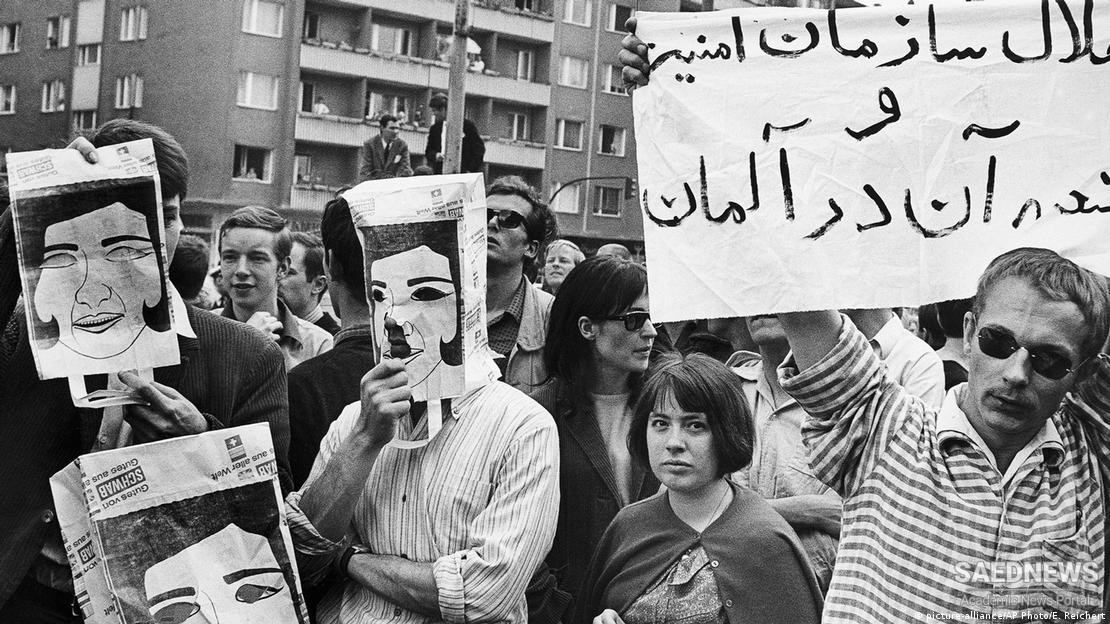Some of these activities are outlined here briefly. Germany’s activities were not limited to the Gulf area, where the Wönckhaus Company established branches in Bandar Abbas, Bushire, and other cities. In 1906 Iran asked for the establishment of a German bank at Tehran, hoping for support against Russian encroachments. Desiring not to antagonize Russia, Germany hestitated to heed the Iranian request at this time and informed Russia that “Germany had no political aims or interests in Persia.” M But the Deutsche Orient Bank continued negotiations with the Iranian government and obtained a concession to establish branches in Iran. British and Russian opposition killed this concession in 1907, and the conclusion of the Anglo-Russian Convention in the same year rendered German penetration into Iran even more difficult.
The Anglo-Russian rapprochement of 1907 was not foolproof. Germany succeeded in causing trouble between Great Britain and Russia by concluding with the latter the Potsdam Agreement (August 19, 1911), the very heart of which involved German penetration into the Middle East by way of the Tehran-Khanaqin railway. When the war broke out, German activities in the Middle East were intensified to an unprecedented extent. Of the two Muslim states dominating the area, the Ottoman Empire soon cast its lot with the Central Powers, but Iran declared itself neutral. The German shortrun aim in Iran was twofold : first, to impel Iran to follow the lead of Berlin and Vienna and, second, to divert the British and Russian energies from the main theater of war in Europe by creating or intensifying anti-Entente sentiments and activities in Iran, Afghanistan, and India. The fact that the Iranian mood was favorable to German designs will be discussed later. Here German activities working against Iranian neutrality will be outlined.
Germany worked, in the main, through diplomatic and military channels, sparing few areas of Iranian life. The staff of the German Embassy at Tehran consisted of Prince Henry XXXI de Reuss, the Minister, and Otto von Hentig, Franz Litten, Dr. Ilberg, and R. von Kardorff. The first and the last established the closest contact with the members of the Cabinet of Mustawfi al-Mamâlik and some of the members of the Democratic party of Iran. The activities of Von Reuss and Von Kardorff were greatly facilitated by an Iranian nationalist from an influential family by the name of Muvarrikh al-Dawlah Sipahr, who started his services at the German Embassy in June 1914.11 Von Kardorff, under the sponsorship of Sipahr, visited many Iranian statesmen regularly at the home of Sälär al-Sultän. The pretext for these visits was to attend the Shi'i passion shows at a session of which Von Kardorff, pretending to be a newly converted Muslim, wept for the Stiff martyrs! The news of this event ran throughout the dty, and soon thereafter the mullahs began to pray for the victory of the Germans from the pulpit.
Conscious of the pro-German feelings among the prospective deputies of the Third Majlis, the British and Russian Ministers intrigued against the opening of the Majlis, while Von Kardorff worked for it. In the end the Third Majlis opened on January 4, 1915, and the major target of German diplomatic activities shifted from Qasr-i Gulistän, the Palace, to Bahäristän, the parliament building, with significant results for the Germans.1* Von Kardorff secretly met some of the Democrats including Rizä Musävät and Jalil Ardabili in the house of Vahid al-Mulk-i Shaybânî. At this meeting it was resolved that the Democrats and the Moderates would put aside their differences and form a coalition, under the leadership of Mirza Muhammad Çâdiq-i Tabätabä*!, with the ultimate aim of winning the Cabinet to the cause of the Central Powers and the abandonment of neutrality.
A number of military missions were dispatched to Iran after the German military attaché in Tehran, Count Kanitz, had done much spadework during extensive travels in the provinces. The Zugmeyer mission operated in southern Iran, extending its activities to Kerman and Isfahan. The Klein mission was active in Kermanshah and the surrounding areas. The most important and successful German agent, however, was Wassmuss. He fomented an anti-British uprising among the Qashqä*! and Bakhtyârl tribes in southwestern Iran. Wassmuss’ success was due to his shrewd exploitation of the feud between $ulat al-Dawlah and his brother, Sardàr Ihtishâm. Çulat’s anti-British sentiments prompted him to heed Wassmuss’ plan for tribal uprisings because he had been deposed as chief of the Qashqäf tribe by his brother with the assistance of the pro-British Qaväm al-Mulk, the chief of the Khamsah tribe and the governor of Shiraz.14 German military activities in Iran were masterminded in Berlin, where Niedertnayer, the leader of the mission to Iran and Afghanistan, some of the Iranian nationalists who had formed the Iranian Committee for Cooperation with Germany.
The German aims and activities were, in the main, directed against British interests in Iran, Afghanistan, and India. To protect their interests, the British government decided to dispatch troops to Iran, and thus three more sections of the country, the southwest, the southeast, and the northeast, were turned into battlefields. The northwest had become a theater of war as a result of Russo-Turkish hostilities.


 Imam Khomeini's Message to the Iranian Elite and Academics
Imam Khomeini's Message to the Iranian Elite and Academics














































